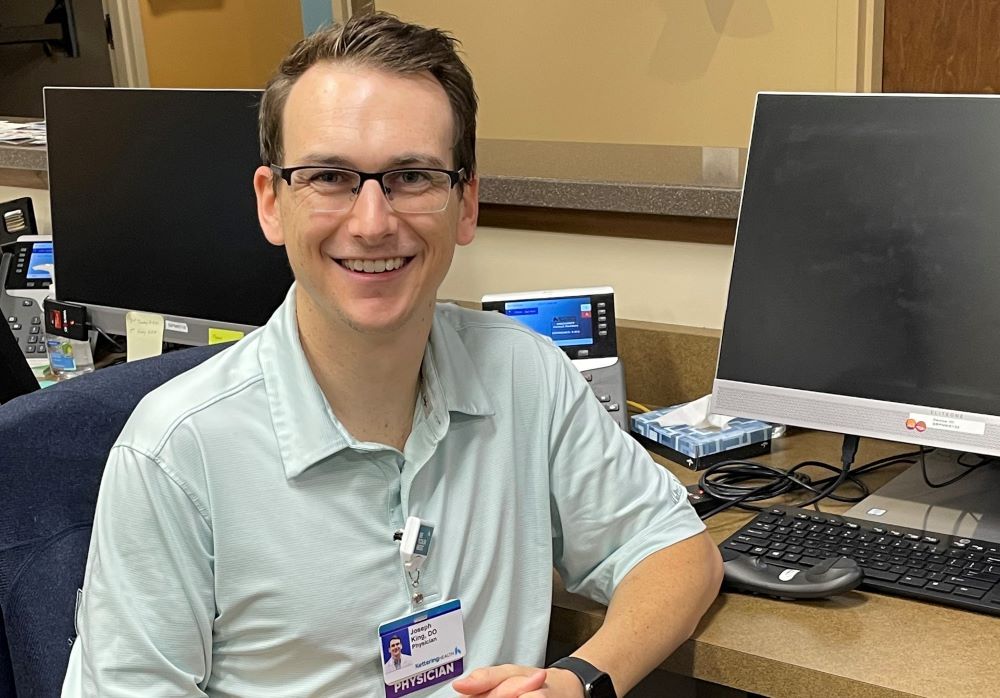Primary Care
Want to learn more about this at Kettering Health?
Whether it’s from coffee, tea, or energy drinks, most of us drink caffeine daily. The boost of energy helps wake us up in the morning and get through the day. And with our busy schedules and ever-growing to-do lists, we can use all the help we can get.
But no matter what your favorite caffeinated drink is, it’s important not to drink more than your body can handle.
How much is too much?
According to Dr. Joseph King, a primary care physician, “There are no strict guidelines on how much caffeine is too much. But 400 milligrams or less per day is generally safe.”
To put that into perspective: The average 8-ounce cup of black coffee has about 100 mg of caffeine, whereas an 8-oz cup of black tea only has around 50 mg.
The amount of caffeine in standard energy drinks ranges from 80 mg to 300 mg depending on brand and size. It’s important to always check labels.
Dr. King stresses that because teenagers metabolize caffeine more quickly, they should drink only 100 mg or less a day. And anyone 12 or younger shouldn’t drink any.
When you’ve had too much
Drinking 400 mg or less of caffeine a day is a good guideline to follow, but everybody is different. Your body will tell you when it’s had too much. Watch for these signs:
- Irritability
- Increased anxiety or jitteriness
- Heart palpitations or a racing heartbeat
- Insomnia
To avoid becoming dependent on caffeine, Dr. King recommends having a weekly caffeine-free day. If you need caffeine to stay awake throughout the day, consider cutting back on your coffee, tea, or energy drink intake.
Dr. King recommends doing this slowly to avoid withdrawal symptoms, such as
- Headaches
- Depressive moods
- Excessive fatigue
- Decreased concentration
But there is some good news: you don’t need to cut out caffeine, particularly from coffee or tea. While too much caffeine can cause side effects, “coffee and tea have been shown to have positive benefits in cancer and heart disease prevention.”









